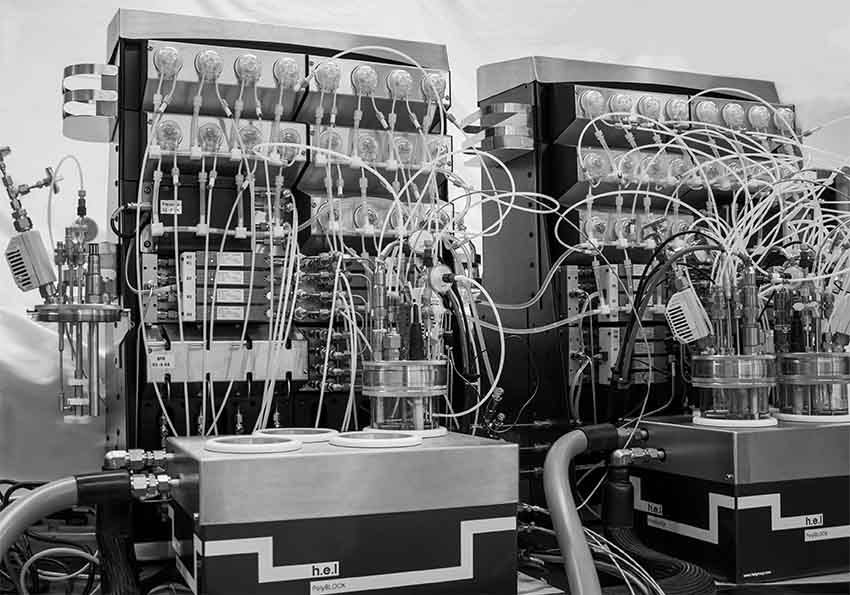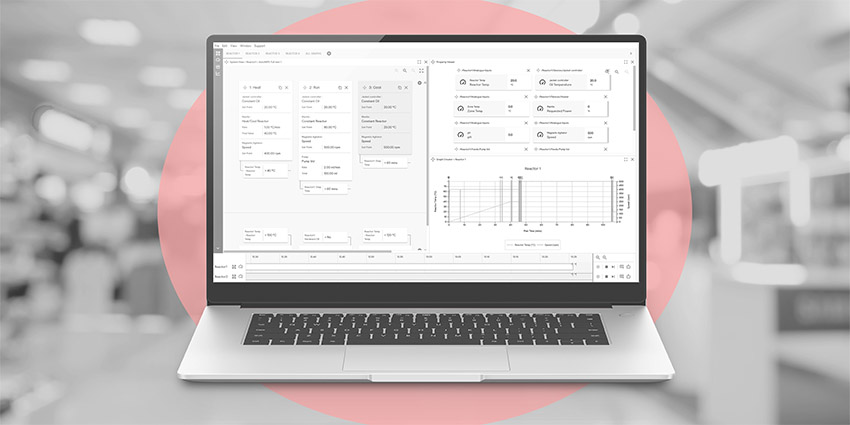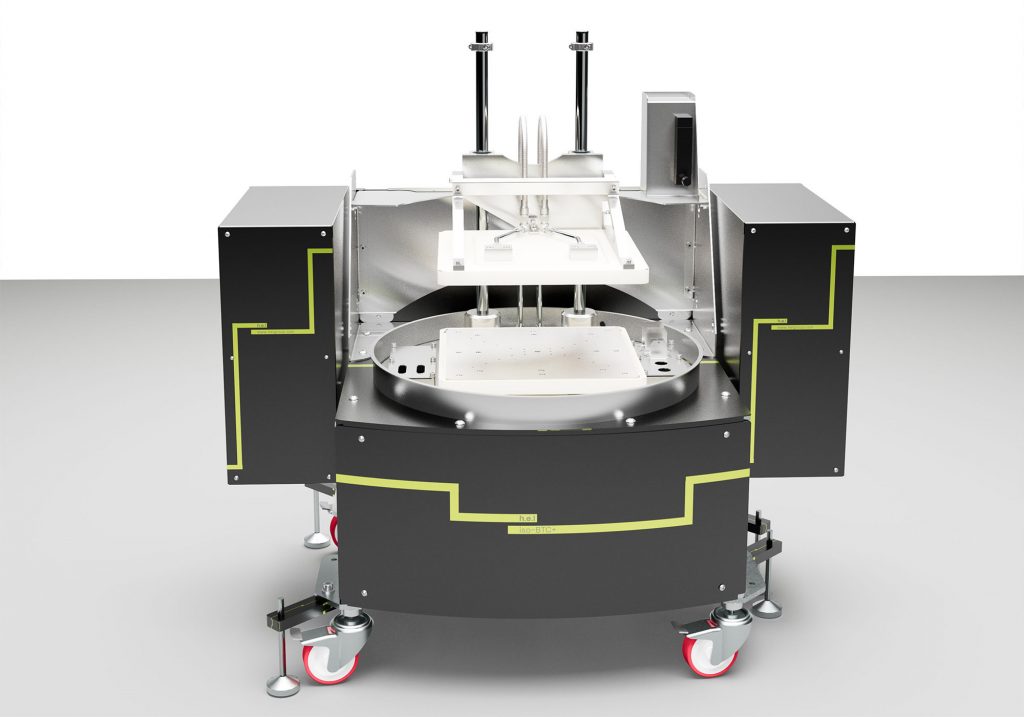H.E.L Group (H.E.L) has a mission to help create a healthier, safer, more sustainable world for everyone. The company develops and manufactures innovative scientific instruments and software designed to optimize the efficiency, safety, and productivity of key processes in chemistry and biology applications.
H.E.L has a long history of solving complex challenges for its customers and since 1987, has worked with businesses and laboratories globally to provide proprietary automated solutions for the pharma, biotechnology, chemical, battery, and petrochemical sectors.
The H.E.L team of 90 includes highly skilled process and software engineers based at extensive research and manufacturing facilities in the UK, as well as sales and support offices in North America, China, India, and Singapore. The company continues to extend the reach of its products and services to support and facilitate R&D and process optimization across Europe, the US, China, and India.
Easy Engineering: What are the main areas of activity of the company?
H.E.L: H.E.L supplies robust automated systems for:
- Safety-critical research and analysis for reaction and battery testing;
- Development and optimization of biotechnology processes;
- Specialized reaction analysis, such as catalyst optimization and crystallization studies;
- High pressure chemical synthesis development and optimization.
E.E: What’s the news about new products?
H.E.L: H.E.L’s most recent new products include the iso-BTC+ battery performance testing system which allows manufacturers to identify optimum charging and discharging profiles for larger, more powerful batteries and electronic devices. For safe and optimized battery performance it is critical to establish battery heat-release profiles and understand the consequences of use, misuse, cell aging and environmental conditions.
With decades of laboratory automation experience, H.E.L’s informatics products remain a key focus. labCONSOL® software brings effortless efficiency to the laboratory, enabling researchers to quickly and accurately track how an experiment is proceeding; by focusing on the most critical aspects, unnecessary repeated lab work can be avoided.

E.E: What are the ranges of products?
H.E.L: H.E.L largely provides bench-scale automated systems that support research and development in the following application areas:
- Battery safety and performance testing
- Based on adiabatic and isothermal calorimetry techniques, customers can explore the absolute safety limits of new batteries and cells, and then determine the optimum operating and charging conditions for these batteries.
- Bioprocessing;
- H.E.L’s automated biotechnology platforms enable customers to conduct complex process optimization studies. As well as providing detailed analysis of reactions and complete data logging, the systems will automatically intervene in the experiments, based on pre-defined rules or triggers. For example, adding acid or base to maintain pH, or introducing new culture feed based on cell growth status
- Reaction safety and process scale-up;
- Based on adiabatic calorimetry and reaction calorimetry techniques, these systems mimic large process-scale reactions at bench-scale, typically in the milliliter to liter range. As well as defining critical reaction and ingredient safety parameters directly, the data from these systems can inform critical plant-scale safety needs, such as required cooling capacity, or vent sizing using the DIERS methodology.
- High-pressure catalysis and hydrogenation;
- Using either batch or continuous flow techniques, H.E.L’s catalysis products support the optimization of catalytic materials and protocols. Typically used in high-temperature, high-pressure hydrogenation reactions, the range is used in the development of technically feasible, and economically viable catalytic processes. H.E.L’s flow reactors allow researchers to optimize reaction parameters in real-time, and support initial ADME-TOX and in vivo style studies.
- Crystallization;
- Designed to identify the parameters for the Meta-Stable Zone, the CrystalSCAN system enables researchers to identify optimum conditions for producing material crystals for use in, physical and structural material analysis.
- Chemical synthesis;
- Whether small-scale process optimization, long time-course studies, or liter-volume scale-up, H.E.L’s fully automated reactor systems support a broad range of chemical synthesis and analysis applications. With complete reaction monitoring, data logging, reaction intervention, and safety monitoring, these systems can be applied to a broad range of applications that require complex multiparameter reactions.
H.E.L also supports multi-liter scale-up systems for Biotechnology and Chemical Synthesis applications.

E.E: At what stage is the market where you are currently active?
H.E.L: It varies by application. The battery testing market is growing very quickly due to environmental initiatives and the rise of electric vehicles (EVs). This market has seen phenomenal growth in China over the past 2-3 years and we expect to see stronger growth in Europe and the USA reflecting current investment in battery technology and EVs.
Biotechnology applications are also a growing market. Driven primarily by biopharma needs, which were boosted during the COVID-19 pandemic, we’re also seeing significant demand from industrial biotechnology applications, for example biofuel or bioplastic development which are being driven by the environmental agenda.
There is a consistent requirement for process safety equipment that enables the safe design of industrial, production-scale materials. The consequences of getting this wrong can include fires, explosions and most regrettable, injury or loss of life for plant staff.
H.E.L’s other market areas are more developed and show steady demand, with some regional variation.
E.E: What can you tell us about market trends?
H.E.L: There are three major trends that drive demand in our target applications and markets.
- Environmental and societal impact – as mentioned previously, technologies such as biofuels and EVs are growing in demand due to their anticipated impact on climate change.
- Safety – whether it’s the safety of a lab researcher working on a high-temperature, high-pressure reaction, or ensuring the safe operation of a production-scale plant, the human, reputational and economic impact of a safety failing are huge, and an ever-increasing focus.
- Productivity and economic viability – ultimately, H.E.L supports customers to conduct studies that will, hopefully, one day turn into commercial products. As such, we have a key role in supporting the economic viability of the processes.
E.E: What are the most innovative products marketed?
H.E.L: When it comes to innovation, we take a lot of inspiration from our customers. Innovation happens at the sharp edge of science, but usually involves what are considered routine, standard processes. The fundamental design of our systems allows for common configurations to be adapted and customized to meet the bespoke needs of new and exciting science. Taking these customizations and incorporating them into H.E.L’s routine offering allows us to stay at the cutting edge of innovation and technology development.

E.E: What estimations do you have for 2023?
H.E.L: We anticipate a broader geographic interest in battery technology, especially as a result of the Creating Helpful Incentives to Produce Semiconductors (CHIPS) Act1 and Inflation Reduction Act2 recently implemented in the USA. As well as EVs, the need for safe, effective batteries is driving the power curve upwards, bringing the challenge of ensuring the performance and safety of batteries and battery packs that are both physically larger, and with a higher energy capacity than ever before. We predict that this will drive the need for improved testing modalities.
Efficiency in bioprocess and biotechnology applications continues to be a significant market need, particularly in biopharma markets, and more so in industrial biotechnology applications that support atmospheric decarbonization initiatives.

